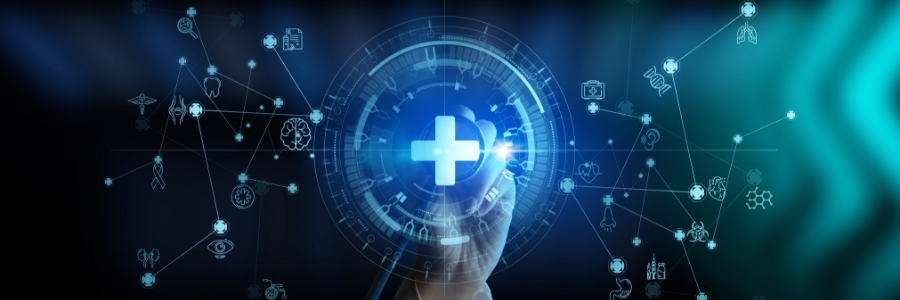All indications point to artificial intelligence (AI) being a game changer for the healthcare industry. And, in fact, it has already revolutionized healthcare for both medical professionals and patients. Let's take a closer look at how AI has transformed the healthcare sector.
AI is changing the healthcare industry
How technology is revolutionizing healthcare
Ways online scheduling can help healthcare organizations
Healthcare cybersecurity: 5 Strategies to protect against insider threats
How to ensure the security of IoT devices in healthcare

With the widespread implementation of the Internet of Things (IoT) in healthcare, security concerns that were previously not considered have suddenly become a reality. In 2022, attacks using malware increased by 38% compared to the previous year. This equates to 1410 attacks per week - something device vendors must pay close attention to.
How big data helps reduce hospital readmissions

Business intelligence (BI), or big data, involves analyzing large data sets to improve decision-making. This concept has been around for many years, and it has certainly benefited a sprawling industry like healthcare. One of the main reasons for this has to do with the Affordable Care Act, which penalizes hospitals for having high readmission rates.
What HIPAA compliance means to your business

If your company is in the healthcare industry or provides medical services, you are required to comply with HIPAA regulations. In this article, we’ll talk about what HIPAA is, and what being HIPAA-compliant means to your business.
What is HIPAA
The Health Insurance Portability and Accountability Act of 1996 (HIPAA) is a federal law that establishes national standards to safeguard sensitive patient health information from being released without permission.
The pros and cons of EHR systems
HIPAA compliance guidelines for social media usage

Social media can be a powerful tool for healthcare organizations to spread awareness. But in using social media, these organizations must adhere to specific Health Insurance Portability and Accountability Act (HIPAA) compliance standards. In this blog post, we will discuss guidelines for HIPAA compliance regarding the use of social media.
The benefits of cloud computing to patients and healthcare providers

There's no doubt that cloud computing is revolutionizing healthcare. From improving patient care to making medical records more secure, the cloud is making continues to make a big impact in the world of healthcare. Here are just a few of the benefits of using cloud solutions in your healthcare practice.





